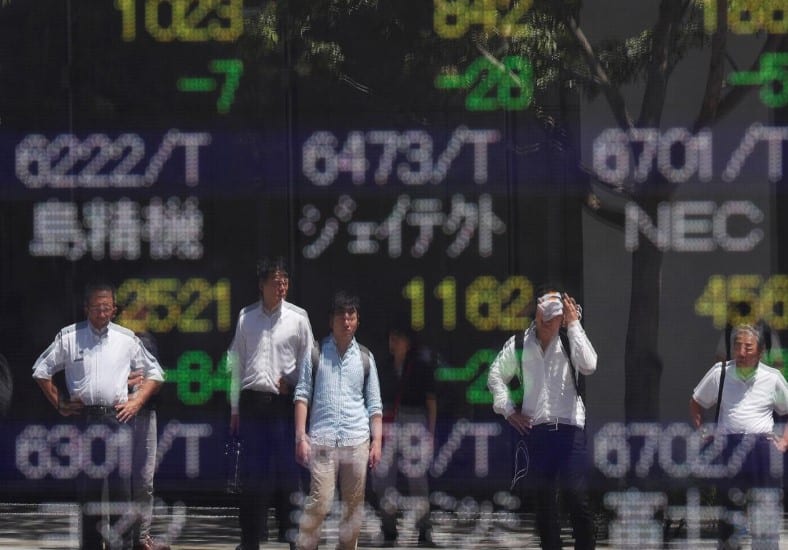
Global stocks were hit by U.S.-China trade frictions on Tuesday while the British pound flirted with 2 1/2-year lows as Prime Minister Boris Johnson indicated he could call an election to stymie lawmakers’ efforts to avert a no-deal Brexit.
MSCI’s broadest index of Asia-Pacific shares outside Japan .MIAPJ0000PUS shed 0.2% in early trade while Japan’s Nikkei .N225 was flat.
U.S. bond yields were little changed in early Tuesday trade after a market holiday in the United States on Monday. The 10-year U.S. Treasuries yield was flat at 1.506% US10YT=RR.
Global shares face headwinds from tariffs Washington and Beijing slapped on each other.
The United States began imposing 15% tariffs on a variety of Chinese goods on Sunday and China began imposing new duties on U.S. crude oil, the latest escalation in their trade war.
Although U.S. President Donald Trump has said both sides would still meet for talks later this month, tensions have shown little sign of abating.
China said on Monday has lodged a complaint against the United States at the World Trade Organization over U.S. import duties, trashing the latest tariff actions as violating the consensus reached by leaders of China and the United States in a meeting in Osaka.
“We have so many problems around the world, starting from the U.S.-China trade war and Brexit. But investors appear to be getting used to be exposed to them,” said Hiroyuki Ueno, senior strategist at Sumitomo Mitsui Trust Asset Management
“No one really thinks Washington and Beijing will solve the issues. But as long as the U.S. economy keeps going, stock prices will have limited downside,” he said.
U.S. manufacturing survey by the Institute for Supply Management (ISM) due at 1400 GMT Tuesday is a major focus for investors.
Although U.S. manufacturing activity has been slowing in recent months, the ISM’s index has so far stayed above 50, which separates contraction and growth.
In the currency market, sterling traded at $1.2063 GBP=D4, little changed so far on Tuesday after having dropped 0.85% on Monday. The currency stood just a half cent above its 2 1/2-year low of $1.2015 hit on Aug. 12.
Prime Minister Johnson implicitly warned lawmakers on Monday that he would seek an election if they tied his hands on Brexit, ruling out ever countenancing a further delay to Britain’s departure from the European Union.
Uncertainties over Brexit have already hit the UK economy, with survey by the IHS Markit/CIPS showing British manufacturing contracted last month at the fastest rate in seven years.
The picture is not much better in Europe and the European Central Bank is widely expected to cut interest rates next week to cushion the blow, pressuring the euro.
The common currency fell to a two-year low of $1.09555 EUR= in early Tuesday trade.
The offshore Chinese yuan also dropped to a record low of 7.1975 per dollar CNH= while the Australian dollar fetched $0.67145 AUD=D4, not far from a decade-low of $0.66775 hit last month.
The Reserve Bank of Australia is expected to keep its policy on hold on Tuesday, though many market players expect an interest rate cut next month.
Argentine bond prices fell to record lows on Monday and the official and black market pesos diverged after the country imposed capital controls in a bid to stem a currency rout that is sharpening the risk of default.
The peso ARS=RASL closed 0.88% stronger in official markets, but closed 0.79% weaker in the black market at 63.5 per dollar.
Oil prices were also dented by concerns over the trade war. U.S. West Texas Intermediate (WTI) crude CLc1 lost 0.76% to $54.68 per barrel.

